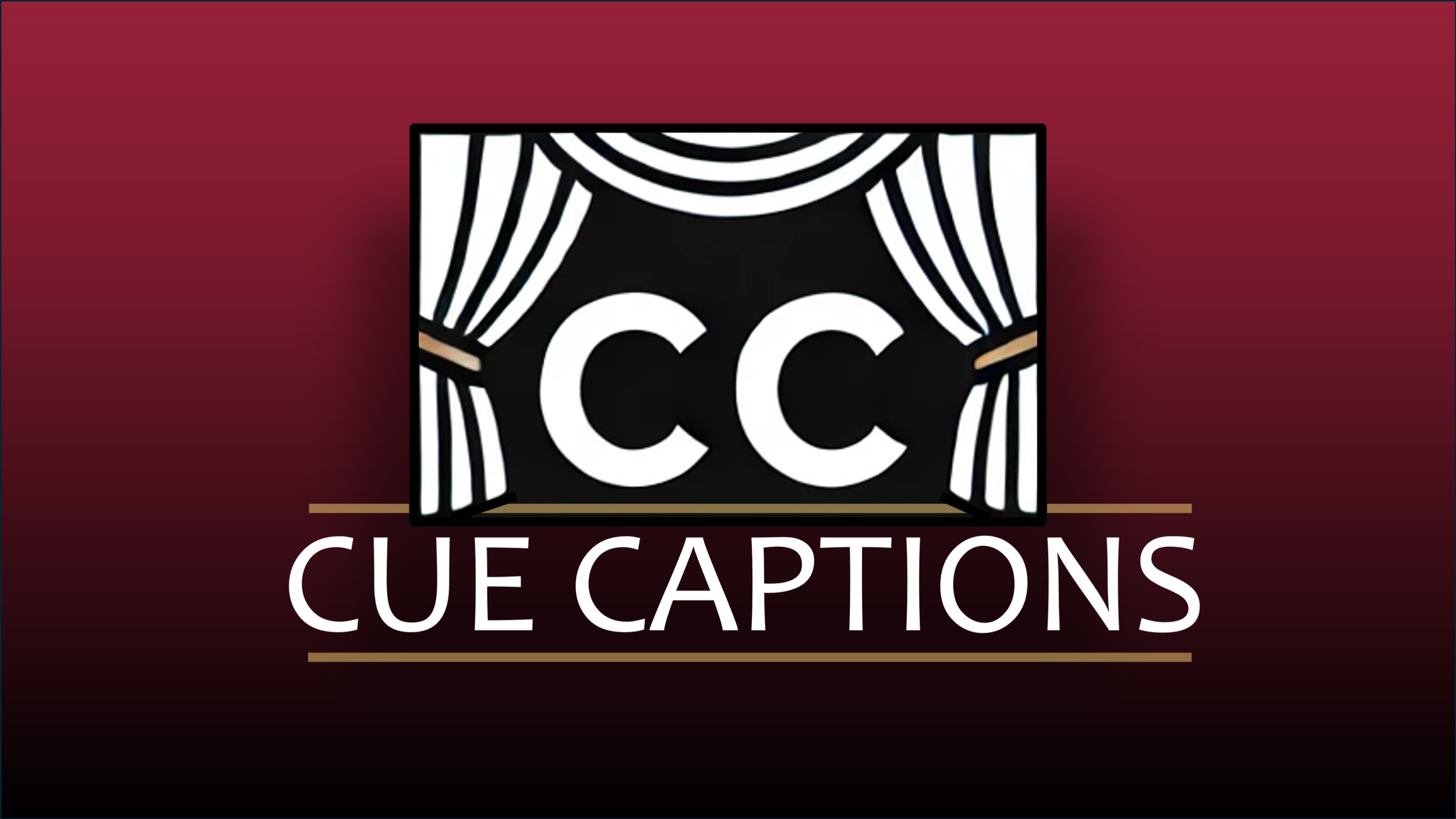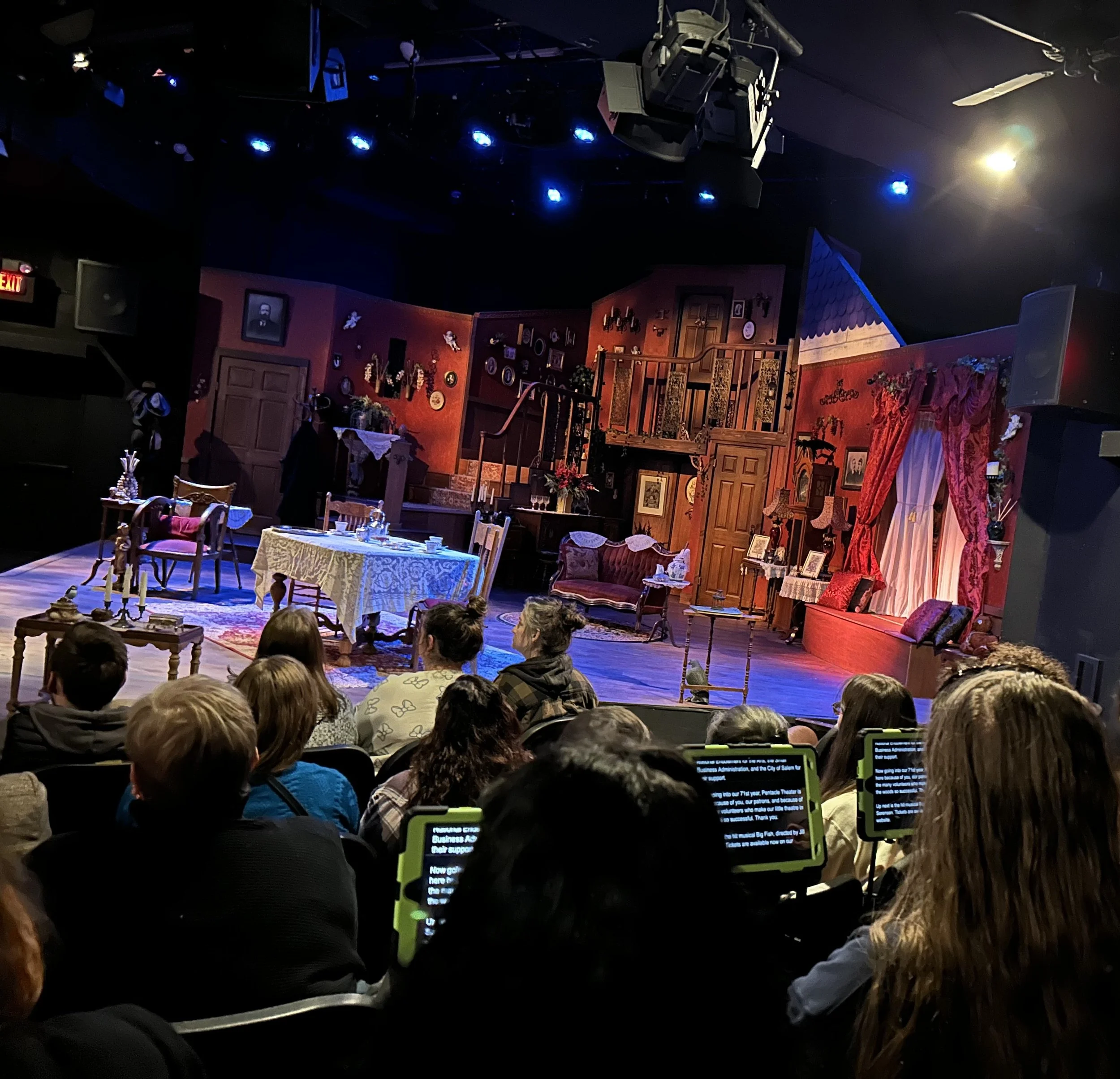Cue lights… Cue curtains…
Why Captions?
Retain long-time patrons as they lose hearing.
For the inclusion of Deaf people in theater.
Captions can satisfy both groups!
Now see here
FAQs
-
“…it was awesome. First time fully understanding a play!!”
“…innovative and thoughtful…!“
“It made the entire performance much more accessible and enjoyable for me. Knowing that this kind of accessibility is available makes me even more eager to attend more live theater productions in the future.”
“Thank you for working towards inclusivity, it's greatly appreciated!”
-
Cue Captions helps you promote your accessible performances through targeted outreach to the Deaf and Hard-of-Hearing community. We collaborate with trusted local organizations and community members to spread the word via email, social media, and event listings.
This approach builds authentic relationships and ensures that your accessibility efforts reach the people who will benefit most.
-
Reliable WiFi
A reserved seat for the captionist (near the consumers is best)
Cue Captions can provide all the necessary equipment (or advise you if you decide to purchase your own).
-
Unfortunately, no. Access services like captioning and interpreting are critical services for the inclusion of Deaf and Hard-of-Hearing patrons. When not done reliably and well, inclusion turns to exclusion.
Relying on volunteers undermines the quality and consistency of the services, potentially excluding or misrepresenting important information.


